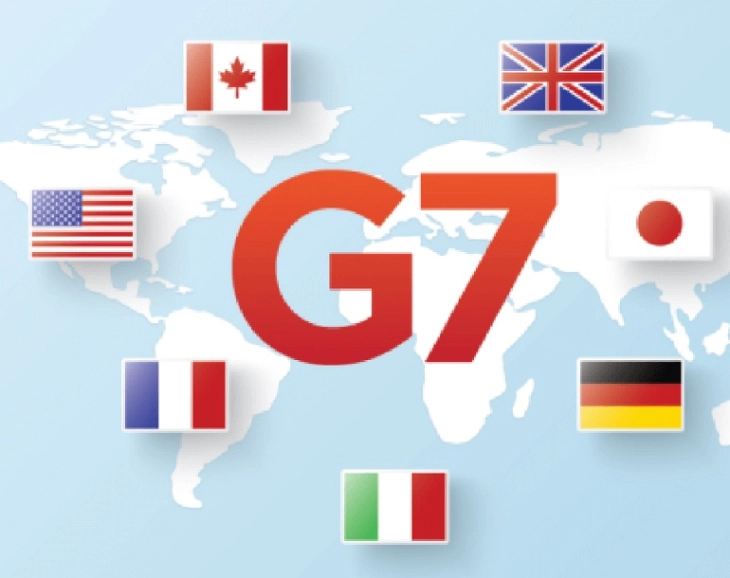G7 aims to hurt Moscow with agreement to cap price on Russian oil

Berlin, 2 September 2022 (dpa/MIA) - The Group of Seven leading economies agreed to impose a price cap on Russian oil exports to prevent Moscow profiting from the effects of its war on Ukraine.
In a joint statement issued on Friday by G7 finance ministers, they called on all countries that import Russian oil to join their measure in order to create "a broad coalition to maximize effectiveness."
In essence, the idea is to force Russia to sell oil to big buyers like India, to which the oil has to be transported via sea routes, for a much lower price in the future.
The price cap could work by the tying financial services and insurance for oil transports to compliance with the regulation. Such services are largely in the hands of the West's biggest economies.
If the plan is carried out, sea transport of crude oil and petroleum products of Russian origin will only be possible if the oil is purchased below a certain price.
The hope is that this will, on the one hand, relax the pressure on global oil markets and cushion the impact of the Ukraine war on energy prices. At the same time, Russia would no longer benefit from increases in the price of oil to fill its war chest.
"The G7 took a critical step forward in achieving our dual goals of putting downward pressure on global energy prices while denying Putin revenue to fund his brutal war in Ukraine," US Treasury Secretary Janet Yellen said in a statement.
"Today’s action will help deliver a major blow for Russian finances," she added.
German Finance Minister Christian Lindner said that the price cap could "really curtail inflation very significantly," and also expressed his determination to stop Russia profiting from its war through energy exports.
Meanwhile, at a meeting of lawmakers of the German Conservative Party in Bavaria, European Commission President Ursula von der Leyen called for an EU-wide price cap on Russian gas, too.
"I am convinced that this is the time for a price cap on Russian pipeline gas imported to Europe," she said. A price cap could be agreed at a European level, she suggested.
While the European Commission had advised against a proposed price cap for gas within the EU market on the grounds that it could distort supply and demand, von der Leyen's suggestion is to only impose a price cap on imports from Russia.
While this could lead to lower prices within the EU as well, it carries the risk that Russia would stop delivering gas entirely.
Von der Leyen said the first priority should be to save energy wherever possible amid global shortages. The second short-term step should be a tax on the unexpected windfall profits by electricity companies, with a price cap on Russian gas as a third step.
In the medium term, she said "massive investment" in renewable energies and a restructuring of the energy market would be necessary.







